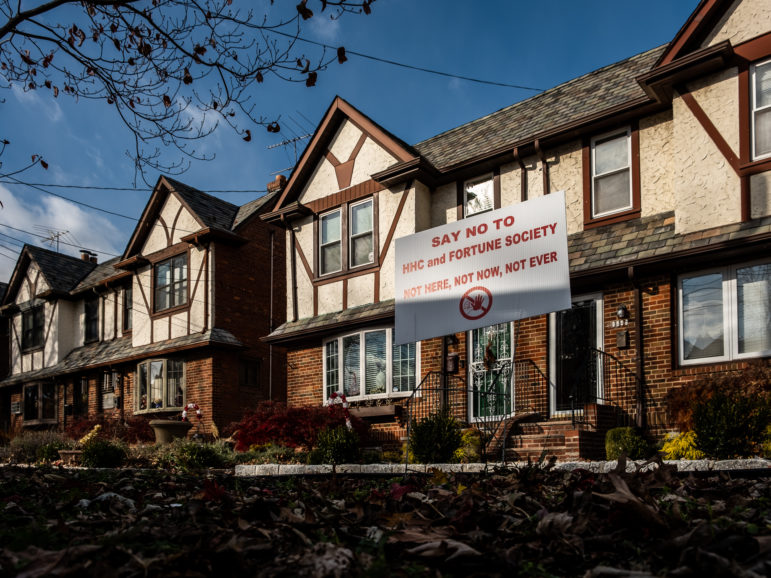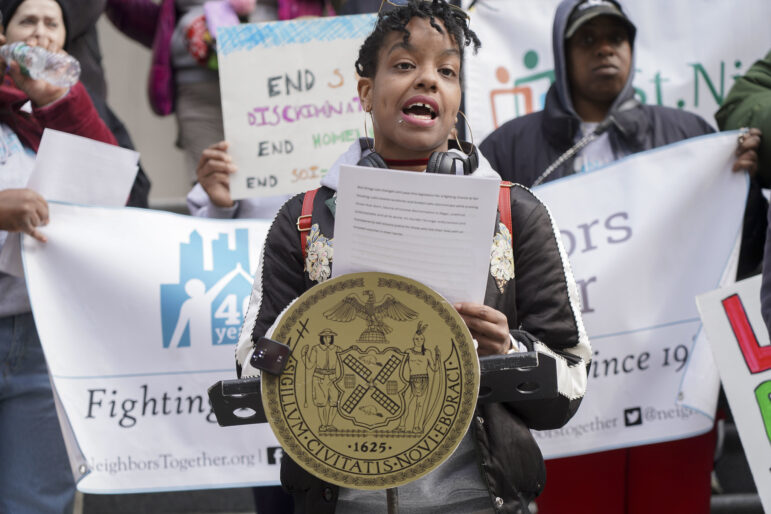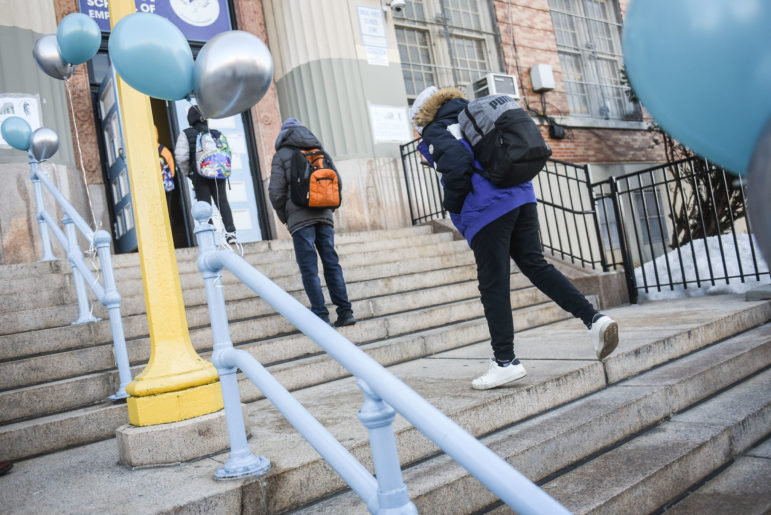Three months after Gov. George Pataki announced a plan to raise salaries for health care workers, employees of social service agencies, from substance abuse counselors to day care workers, are asking, “What about us?”
Last Tuesday, about 1,800 human service workers crowded outside the governor’s midtown office to demand raises of their own. It was the first rally of its kind employees from this industry had held in years. If the governor is willing to spend $1.8 billion to hike the pay of nurses and orderlies, they argued, then he should explain why he can’t afford raises for severely underpaid social service workers. Particularly, they add, as their programs face cuts under the governor’s proposed budget.
For three years, social service workers have talked raises with the governor, said Darwin Davis, executive director of the Human Services Council (HSC), a coalition of 200 social service agencies that organized the rally. The needs, he says, are clear: In 2000, the average salary of a human service employee was $25,000, about $20,000 less than the average annual pay for all state workers. Salaries have barely gone up since then, if at all, he said, leading to annual turnover rates as high as 50 percent.
After September 11, the governor and his staff expressed their sympathy with the workers’ situation, Davis said, but told them that the costly events of the Trade Center attacks prohibited the state from allocating extra cash for salaries. “We had been told to be patient, and we were understanding,” said Davis.
That is until January, when the governor announced an aid package for the state’s health care workers—the result of a deal between Pataki and health care union 1199 head Dennis Rivera. “I was irate,” said Davis, “and so were a number of my colleagues.”
While he says he does not begrudge health care workers the much-deserved raise—in fact, some of the Human Services Council’s members will benefit from the deal—Davis fears his sector could suffer if higher paying health care jobs lure workers away from an industry already struggling with low staffing.
In addition to taking to the streets to lobby the governor, HSC has been talking with the state Assembly’s Ways and Means Committee. While he would not comment on whether or not the workers are likely to get a raise this year, Ways and Means chair, Assemblyman Herman D. Farrell, did say his committee is negotiating with Pataki to include human service raises in this year’s budget. “We’re looking at all these programs,” he said, “and we are looking at helping these folks.”
Davis is cautiously optimistic. If the state budget passes as it stands now, he says, employees in the mental health field will receive a raise, and in the near future, it’s likely that workers in substance abuse, child care and child welfare services will, too. But, he adds, the HSC will not be satisfied until workers in all 12 fields have their needs addressed, which he admits could take some time. One method for getting that, he admits, is definitely out: “We’re not the striking sector. I sometimes wonder if the governor relies on that.”








